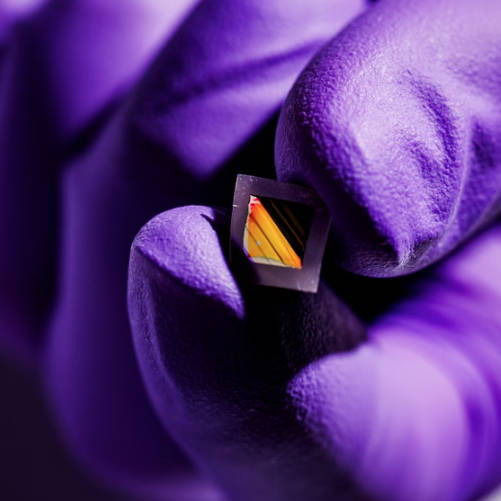
|
Easy off: New technique levels up the industrial-scale production of electronic thin films
May 16, 2025
A team of researchers across several universities has developed a new, efficient technique for peeling ultra-thin crystalline electronic membranes away from their substrates—an advance that opens the door to wide-ranging industrial-scale applications of the materials. In fact, the team used thin film membranes developed in their experiments to create a record-breaking infrared-detecting sensor that could be used in night vision eyewear or autonomous vehicles.Read the full paper
|
|
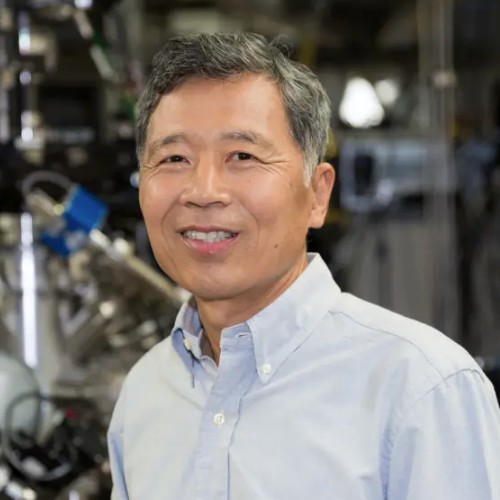
|
New synthesis technique can make thin films from mismatched elements
May 24, 2024
Materials science and engineering researchers at the University of Wisconsin-Madison have developed a new synthesis technique for creating extremely clean single crystalline thin films. Called hybrid pulsed-laser deposition, the method allows them to combine elements with large mismatches in their vapor pressures, an extremely challenging synthesis problem using previous techniques.Read the full paper
|
|
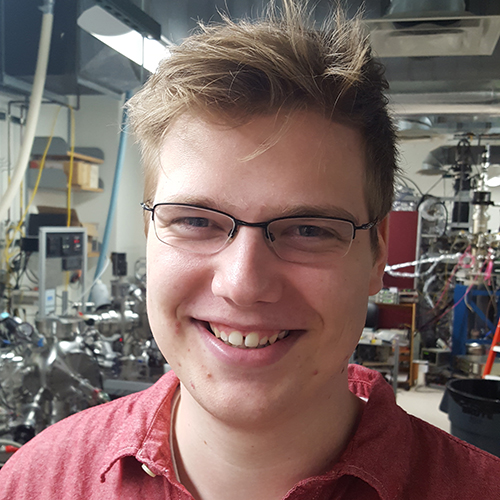
|
A new spin on an old superconductor means that it can be an ideal spintronic material, too
Dec. 5, 2023
Anthony Edgeton tested these heterostructures to measure their spin properties—in particular, their charge-to-spin conversion efficiency. What the researchers found is that Ba(Pb,Bi)O3 has a charge-to-spin conversion efficiency as large as or greater than that measured in any other material. In fact, it was 70 times greater than their calculations first predicted.Read the Nature Research briefing
|
|
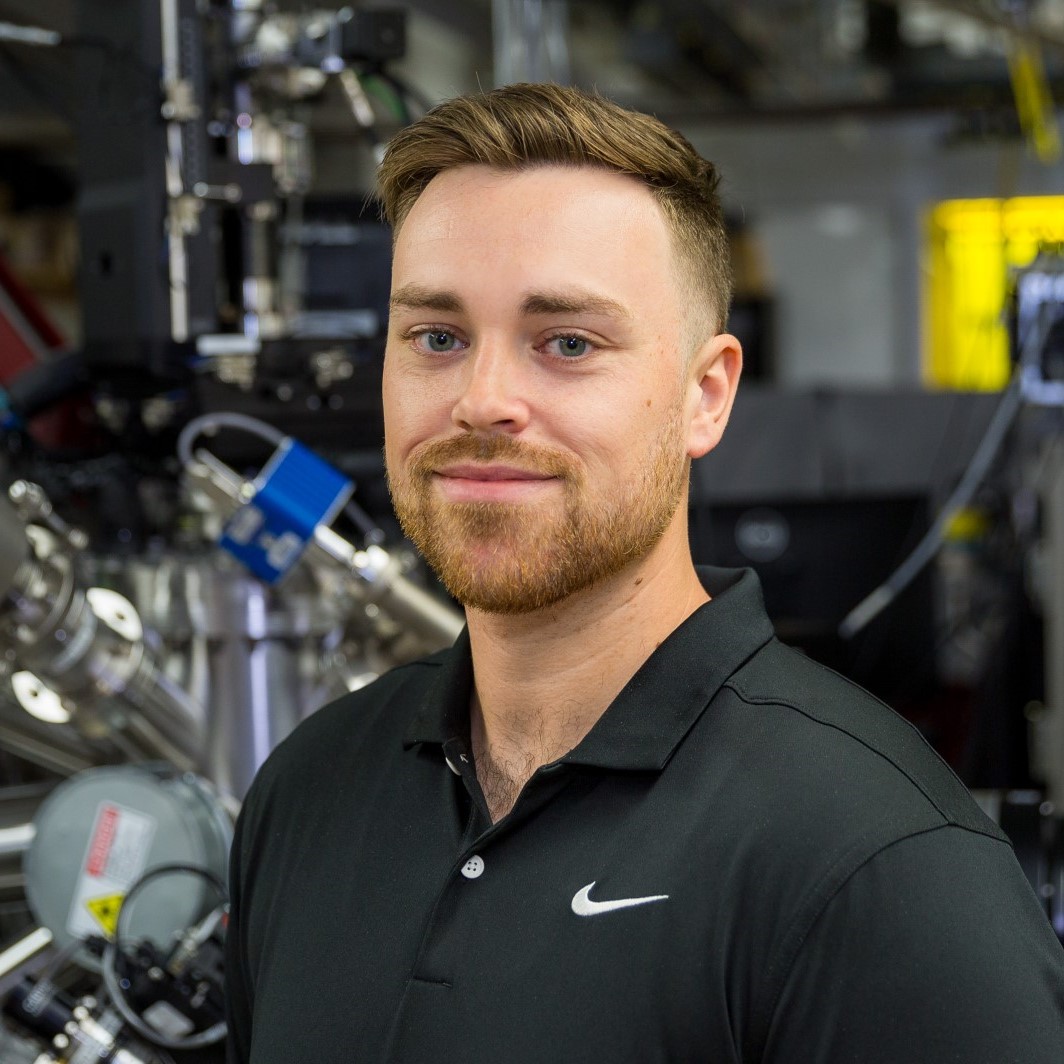
|
A unique material twist could expand spintronic memory devices
July 11, 2023
In his research, Michael Patton found that controlling the crystalline symmetry of the materials led to control of the spin polarization direction, and the ability to design the exact nature of the spin current. He used epitaxy, a method of growing thin layers of crystals, to rotate the orientation of the highly symmetrical material iridium oxide. As a result, he reduced the relative crystal symmetry, which allows for non-conventional spin currents, as well as the in-plane current. Now, his material allows for spin currents in multiple directions within the same material.
|
|
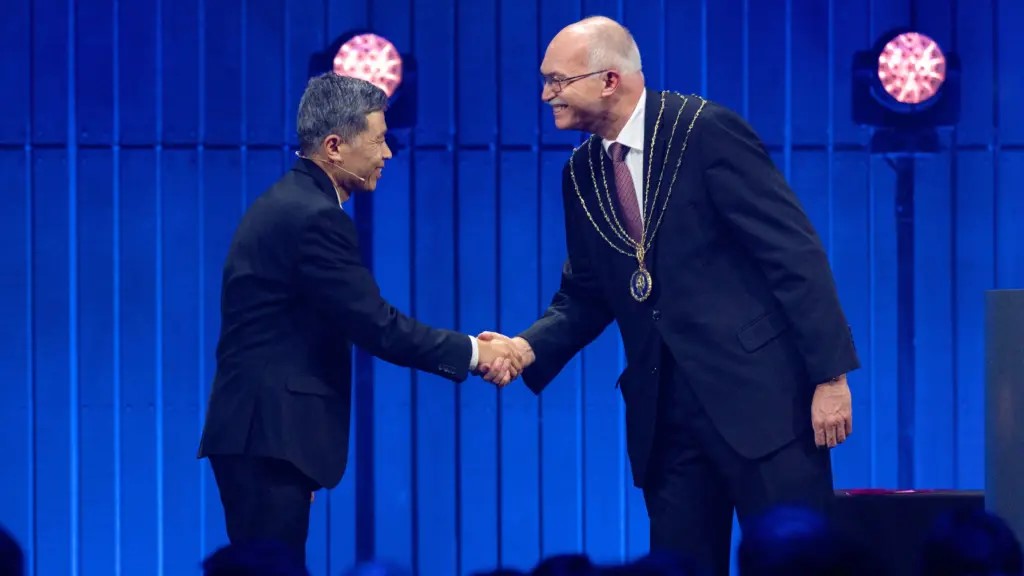
|
Eom receives honorary doctorate from the Technical University of Denmark
May 4, 2023
On April 28, 2023, the Technical University of Denmark (DTU) presented an honorary doctoral degree to Chang-Beom Eom, the Raymond R. Holton Chair for Engineering and Theodore H. Geballe Professor in materials science and engineering at the University of Wisconsin-Madison.
|
|
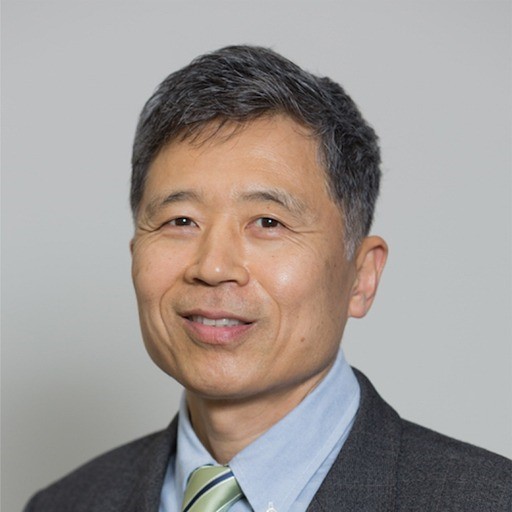
|
Eom selected for prestigious Turnbull Lectureship from the Materials Research Society
Nov. 18, 2022
Chang-Beom Eom, Raymond R. Holton Chair for Engineering and Theodore H. Geballe Professor in materials science and engineering at the University of Wisconsin-Madison, is the recipient of the 2022 David Turnbull Lectureship from the Materials Research Society (MRS).
|
|

|
Low voltage, piezoelectric membrane is big advance for spintronics
Nov. 11, 2021
To create the membrane, Shane Lindemann used various techniques to create a heterostructure with extremely thin layers of strontium aluminate grown on top of strontium titanate. Then he layered on the piezoelectric PMN-PT and placed the multi-layered film in water, which etched away the strontium aluminate layer, leaving only a film of PMN-PT. He then coated it with a layer of nickel, creating a composite thin-film heterostructure of ferroelectric and ferromagnetic materials.
|
|
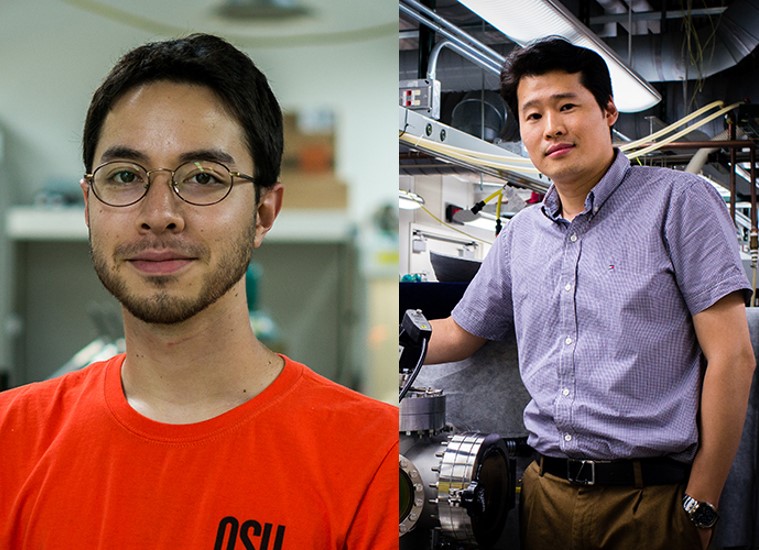
|
MS&E researchers are part of new ‘God Particle’ superconductor discovery
Feb. 1, 2021
University of Wisconsin-Madison engineers, Chris Sundahl and Jong-Hoon Kang, are part of a multi-university team adding another chapter to the Higgs boson saga. They have discovered a form of the famous particle within a superconductor, a material capable of conducting electricity without resistance, generally at very cold temperatures.
|
|
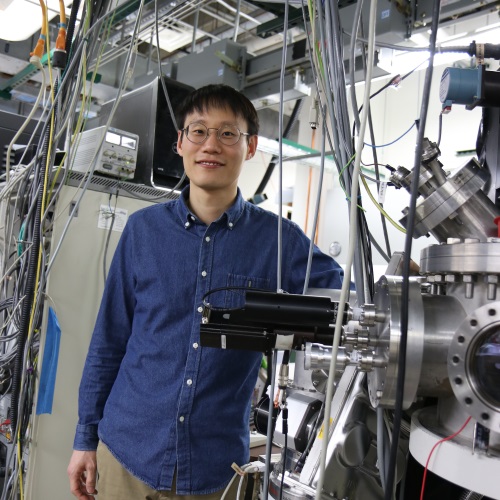
|
New technique produces oxide membrane that could enable next-generation nanoelectronics
Aug. 17, 2021
Kitae Eom recently developed a new method for producing extremely thin, free-standing LAO/STO membranes, which can be integrated into other heterostructures and even into silicon-based nanoelectronics. The research appears in the Aug. 13, 2021, issue of the journal Science Advances.
|
|

|
New materials structures promise faster, smaller and more efficient spintronics
Oct. 26, 2020
Tianxiang Nan and his collaborators have designed a new structure that leverages a little-studied class of materials called antiperovskites to manipulate spin states. The unique properties of the material creates non-colinear antiferromagnetism, which allows for the generation of previously-challenging directions of spin, and the motion of these spins into other layers of the structure.
|
|
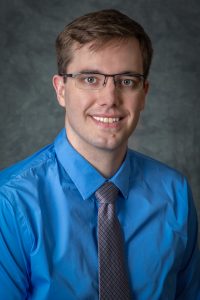
|
Shane Lindemann has been selected to give a colloquium in the North American Materials Colloquium Series (NAMCS)
Oct. 1, 2020
Shane is presenting on October 1st and 2nd at 3pm EST, along with another speaker. This inaugural program of the NAMCS will showcase some of the best and brightest senior graduate students and post-doctoral scholars in the field of materials science and engineering. This highly selective series is intended to provide visibility to future leaders in our field. Thirty-five universities in the United States and Canada are taking advantage of the series as part of their regular fall semester seminar series or are promoting talks within their campus materials communities.
|
|
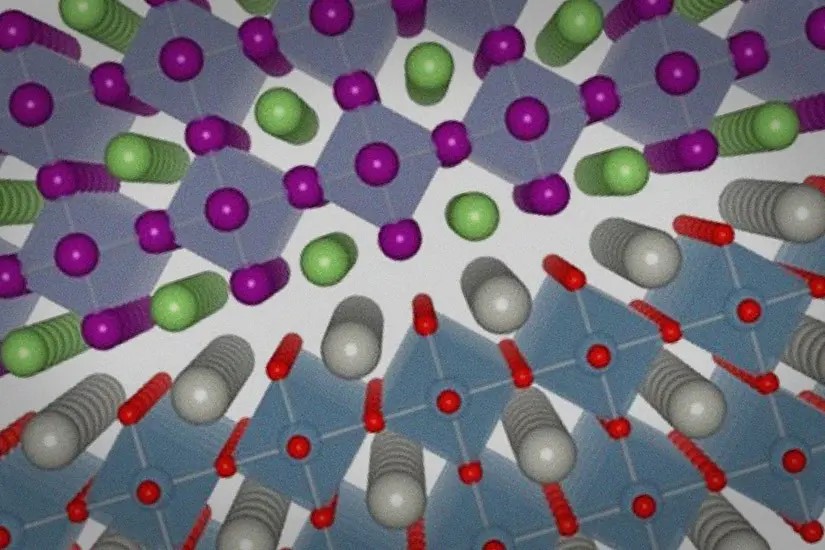
|
A surprising bond: Perovskite-antiperovskite ‘sandwich’ yields surprising, powerful center
July 24, 2020
Recently, an international team of researchers did just that, successfully layering two crystalline materials called perovskites and antiperovskites together, creating an interface with unique electrical properties and opening up a whole new class of quantum materials. Led by Chang-Beom Eom, a professor of materials science and engineering at the University of Wisconsin-Madison, the group details the process in a paper in the July 24, 2020, issue of Science Advances.
|
|
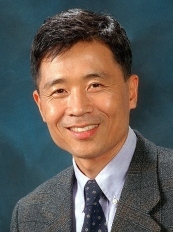
|
Eom receives Vannevar Bush faculty fellowship to study antiperovskite materials
May 13, 2020
The Department of Defense has selected Chang-Beom Eom, a professor of materials science and engineering and physics at the University of Wisconsin-Madison, to receive a 2020 Vannevar Bush faculty fellowship. The five-year, single-investigator award includes $3 million in funding to support basic research with the potential for transformative impact.
|
|

|
Mike Patton earns NSF Graduate Research Fellowship Honorable Mention
Apr. 2, 2020
Oxide Lab group member Mike Patton earned an honorable mention in the 2020 NSF Graduate Research Fellowship program. Mike joined the group in 2018 as a graduate student and works on spintronics, particularly IrO2 thin films. Mike is the only student from the MS&E department to be selected for an honorable mention.
|
|
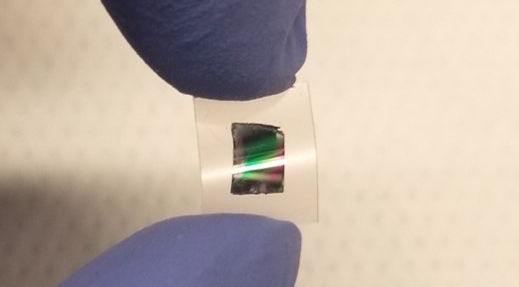
|
Crystal-stacking process can produce new materials for high-tech devices
Feb. 5, 2020
Collaborating with the Kim group at MIT, we demonstrate an alternative to heteroepitaxy growth to make complex-oxide materials. By creating free standing thin films using a new exfoliation technique, physical properties of thin films like piezoelectricity and magnetostriction can be freed from the constraints of a substrate. Further, free standing films can be combined to arrange artificial heterostructures unconstrained by different crystal structures and orientations. Read the full paper
|
|

|
Eom awarded $1.7M grant from Moore Materials Synthesis Investigator program
Jan. 22, 2020
Chang-Beom Eom has been selected for a $1.7 million award from the Moore Materials Synthesis Investigator program. The Emergent Phenomena in Quantum Systems (EPiQS) initiative aims to accelerate research in novel synthesis and new quantum materials.
|
|

|
Eom named as AAAS Fellow
Nov. 29, 2018
The American Association for the Advancement of Science has named Professor Chang-Beom Eom an AAAS Fellow for his contributions to the heteroepitaxy of complex oxide films, including the development of 90° off-axis sputtering, conducting oxides and strain-engineering to enable oxide electronics.
|
|
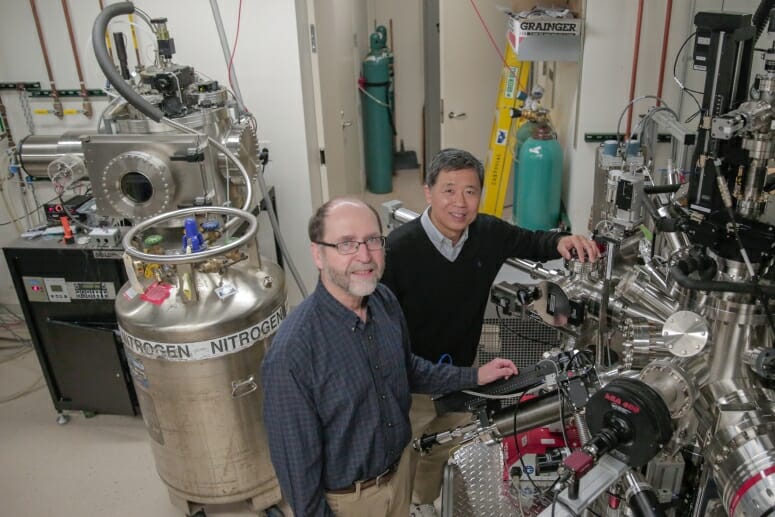
|
Switching identities: Revolutionary insulator-like material also conducts electricity
Nov. 29, 2018
In our new paper in the journal Science, we show that the metal-insulator transition in VO2 can be decoupled into an electronic and structural transition. By growing a layer of oxygen-deficient layer of VO2 ontop of VO2, we show that the combined sandwich can switch electrically without a structural transition, an important step toward ultrafast switching devices. Read the full paper
|
|
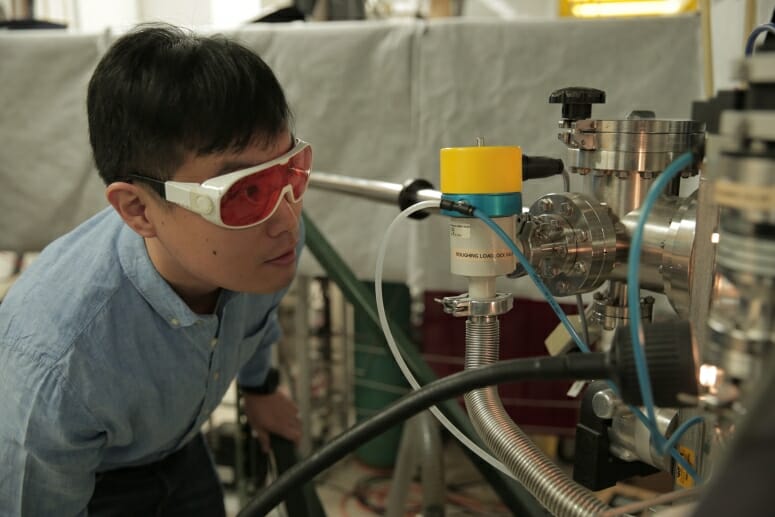
|
Beyond silicon: researchers solve a materials mystery key to next-generation electronic devices
Feb. 5, 2018
Evidence of a two-dimensional electron gases analog, a 2D hole gas, has been reported in our recent Nature Materials paper. Strontium titanate / Lanthanum aluminate / Strontium titanate structures were fabricated with high crystalline quality which allowed the 2D hole gas at the interface between the top strontium titanate layer and the lanthanum aluminate mid layer.
|
|
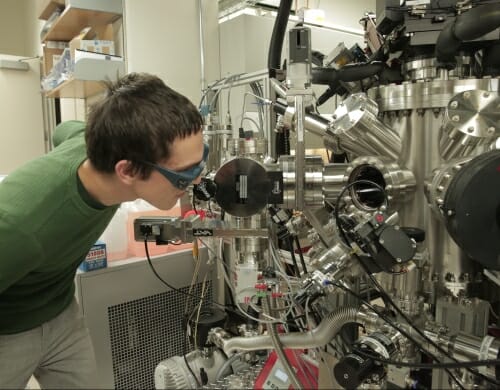
|
‘Magnetoelectric’ material shows promise as memory for electronics
Nov. 29, 2017
For the first time, we have used monodomain Bismuth ferrite films to create a magnetoelectric device using room-temperature exchange coupling to a Cobalt overlayer. Our report in Nature Communications show that switching the BFO film electrically changes the magnetic easy axis of the ferromagnetic Cobalt layer.
|
|
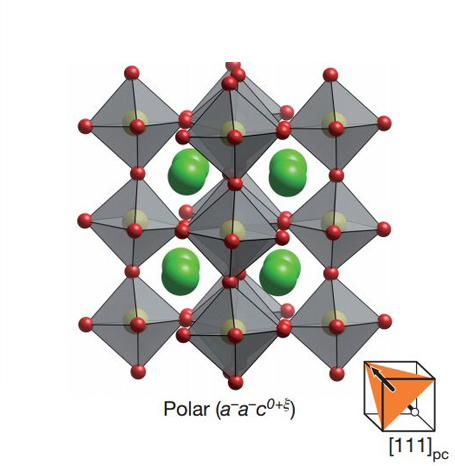
|
New material combines useful, typically incompatible properties
Apr. 20, 2016
Is it a metal or is it an insulator or is it both. We report in Nature the polar metal nature of LaNiO3. The material is electrically conducting but also have polarization, a property only found in insulators. Normally, free carrier found in metals elimates any polar ordering but the distortion of the Lanthanum aluminate substrate is preserved in the Lanthanum nickelate preserving it.
|